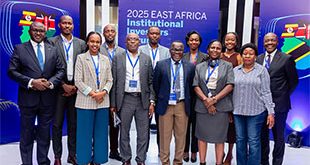
ABUJA, NIGERIA | Xinhua | Nigeria, Africa’s largest economy, enters the New Year amid internal and external difficulties challenging its “Renewed Hope,” with President Bola Tinubu vowing to tame stubborn inflation.
The country is battling its highest inflation rates in nearly two decades. The latest data, from the National Bureau of Statistics, put November’s headline inflation at a staggering 28.2 percent.
Nigeria’s inflation rate entered the double-digit zone in 2016, and has remained stubbornly high since January 2021. It surged to 22.41 percent in May, with food being the biggest driver, and then soared to 28.2 percent in November.
The consumer price index, a main gauge of inflation, jumped about 6.73 percentage points from the 21.47 percent posted in November 2022.
The effects go beyond the statistics, penetrating the daily lives of Nigerians who find themselves navigating increasingly higher cost of living.
Some say the situation has been made worse by ambitious policies and reforms embarked upon by the government.
“The situation is deepened by a complex interplay of factors, including the removal of the long-existing subsidies on petrol, multi-indicator poverty further deepening economic distress, and global economic dynamics,” Ademidun McCann, an Abuja-based economic researcher, told Xinhua in an interview.
Since assuming office in May, President Tinubu has started bold reforms, including the removal of costly fuel subsidies that sent pump prices up, and the floating of the naira against international currencies that saw a weakening of the local legal tender.
Some of these policies have provoked criticisms, with many Nigerians calling for “sequencing of reforms” and a few short-lived nationwide strikes protesting economic hardship.
High inflation and the devaluation of Nigeria’s local currency have pushed up costs for the import-dependent economy, McCann said, highlighting profound challenges faced by ordinary Nigerians.
Nigeria heavily relies on imports for various goods and services, including refined petroleum products, machinery, and consumer goods. It is particularly vulnerable to fluctuations in the global market.
“Fluctuations in global commodity prices and exchange rates have impacted the cost of imports, influencing inflation rates. The depreciation of the local currency has profound consequences, contributing significantly to the surge in consumer prices witnessed in November,” said Esther Lewis, a Lagos-based exporter of electronic gadgets.
“The devaluation of the naira, a critical component of Nigeria’s economic struggles, has led to a spike in the costs of imported goods and services,” she said.
While some point to global economic factors beyond the country’s control, others attribute the inflation surge to structural issues within the Nigerian economy.
The inflationary pressures are affecting households, businesses, and various sectors of the economy, creating a domino effect that amplifies the challenges faced by individuals and communities, said Charles Onunaiju, a global affairs analyst, in an interview with Xinhua.
The critical challenge of “taming the inflation monster” is to increase productivity, Onunaiju said. “The structural nature of the economy has laid it out for inflationary pressures because inflation comes from money supply that is not in tandem with the goods produced.”
As a way of attracting more foreign direct investment to boost productivity, Tinubu has continued to take the gospel of his “business-friendly reforms” to every part of the world he has traveled so far, urging foreign investors to take advantage of the government’s policies to provide jobs for the teeming youths, improve infrastructure, and grow the economy.
But Onunaiju criticized the move, saying though the Nigerian leader has taken the mantra of productivity to the world, asking for foreign investments, “from experience and history, that is the wrong way to start.”
Nigeria’s “campaign to boost productivity and tame inflation cannot be dependent on the goodwill of outsiders, and not when you have a challenge,” he said.
The World Bank’s perspective adds a global lens to Nigeria’s economic crisis. In June, the institution noted that “entrenched inflation” has pushed an additional 4 million people into poverty in Nigeria.
This external assessment underscores the interconnectedness of Nigeria’s economic challenges with broader global economic dynamics, McCann said, emphasizing the urgency of a comprehensive and collaborative approach to finding solutions.
The confluence of rising inflation and multi-indicator poverty paints a bleak picture of the economic hardship faced by a substantial portion of Nigeria’s population, he added.
According to government statistics, about 133 million Nigerians, or 63 percent of the population, are in a state of “multi-indicator poverty.”
However, Central Bank of Nigeria Governor Yemi Cardoso has expressed optimism that the situation with inflation and exchange rates will improve and stabilize in 2024.
He told the media on Dec. 14 that the unification of the exchange rate windows in June had led to a new approach to the management of the exchange rate, aiming to reduce arbitrage, rent-seeking and speculation in the market.
“The outlook for the domestic economy remains positive and is expected to maintain a positive trajectory for 2024,” he said. “Inflation pressures may persist in the short-term but are expected to decline in 2024.” ■
 The Independent Uganda: You get the Truth we Pay the Price
The Independent Uganda: You get the Truth we Pay the Price



